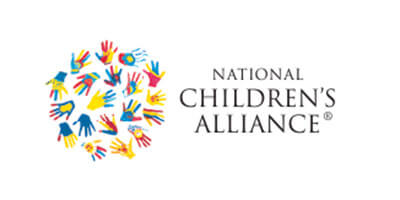Consent is one of the most important topics to be discussed when it comes to sexual encounters. Teaching individuals about what consent is can help people to understand the rights they have over their own body, and the rights that their sexual partner has over their own respective body. But what is consent, really? Consent is the active agreement to be involved in a sexual action (Planned Parenthood, 2021). Before engaging in or having an action performed, each person should be aware of their ability to give or withdrawal their consent to participate in an action. Every individual is entitled to the ability to decline to engage in a sexual interaction, decide to withdraw from a currently active sexual interaction, or decide to progress the sexual encounter to the next stages.
Understanding what consent is can help individuals be protected from potential sexual trauma, and these traumas may not be presented as physical force. For example, sexual coercion may be used to pressure or manipulate individuals to engage in sexual actions that they don’t truly want to participate in (Raypole, 2020). Examples of sexual coercion may include:
- Threats, verbal or physical
- Guilt-tripping
- Using drugs or alcohol to lessen reservations about sexual activities.
For victims of sexual coercion, it can be confusing to understand what actually took place since the victim may have participated in the action in the end. Consent can be easily identified by the following four criteria:
- Consent is clear: The parties involved are both verbally, clearly, and enthusiastically agreeing to participate in the sexual action. If the decision to participate is unclear, the parties involved are obligated to clarify if both parties are comfortable with what actions are actively occurring.
- Consent is ongoing: Each new stage of the encounter is mutually accepted. A person can consent to kissing, but it does not mean they consent to sexual intercourse. It is important to receive consent for each stage of the sexual interaction.
- Consent is coherent: Neither party is under the influence of drugs or alcohol. Both parties are alert and actively participating in the encounter. A person who is sleeping, consuming alcohol, or impaired in any mental functioning are not able to give consent.
- Consent is voluntary: if the victim is being pressured into saying yes, then they are not truly consenting. Both parties need to enthusiastically, freely, and comfortably volunteer their own consent. If consent is being urged out of one engaging party, it may not be being given voluntarily.
Establishing green flags for active consent can prevent sexual trauma and assault from occurring, and also offers a guide to individuals to understand when their consent was not actively given (Santos-Longhurst, 2018). It is also important to understand that consent can be withdrawn at any point in a sexual interaction. At any point during a sexual encounter, both parties are entitled to the decision to withdraw their consent, and no explanation as to why the consent was withdrawn is mandatory (Brogaard, 2018).
In addition, it is never too early to learn about consent, and helping individuals of all ages to understand their own body boundaries and to respect the boundaries of others can prevent instances of sexual assault and trauma from occurring.
References
Brogaard, B. (2018). Why Agreement to Sex Is Not Consent. Psychology Today. https://www.psychologytoday.com/us/blog/the-mysteries-love/201803/why-agreement-sex-is-not-consent
Crowe, A. (2019, May 28). How to Talk to Your Kids About Sexual Assault & Consent. Little Rock Family. https://www.littlerockfamily.com/post/126800/how-to-talk-to-your-kids-about-sexual-assault-consent
Planned Parenthood. (2021). What Is Sexual Consent? | Facts About Rape & Sexual Assault. Planned Parenthood. https://www.plannedparenthood.org/learn/relationships/sexual-consent
Raypole, C. (2020, December 1). How Do You Know If You Were Sexually Coerced? Healthline. https://www.healthline.com/health/sexual-coercion#resources
Santos-Longhurst, A. (2018, August 27). Your Guide to Sexual Consent. Healthline; Healthline Media. https://www.healthline.com/health/guide-to-consent









